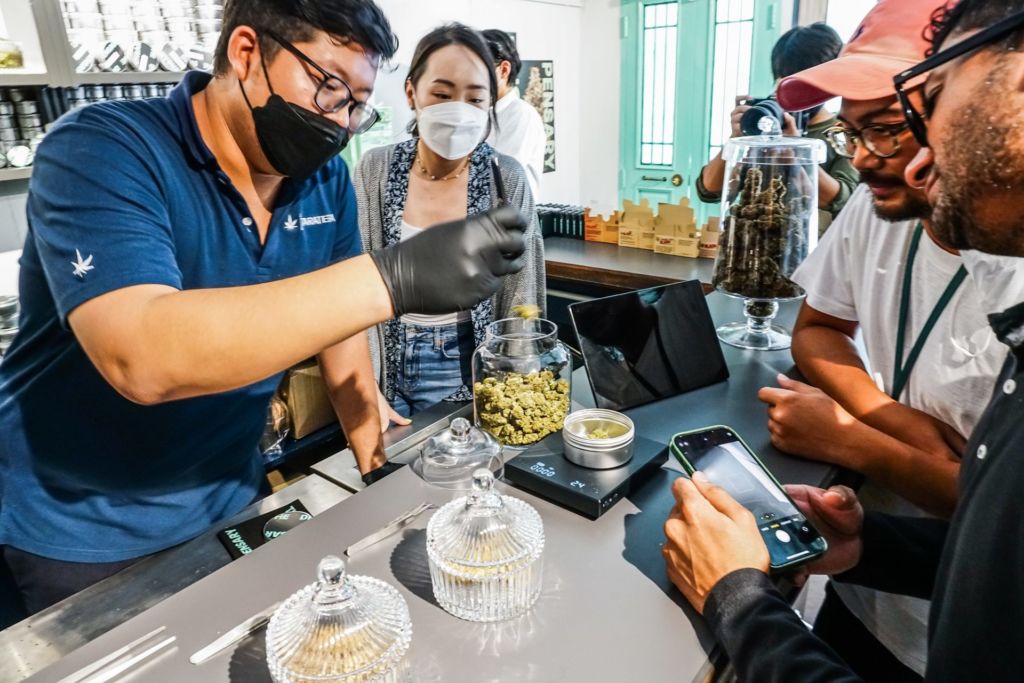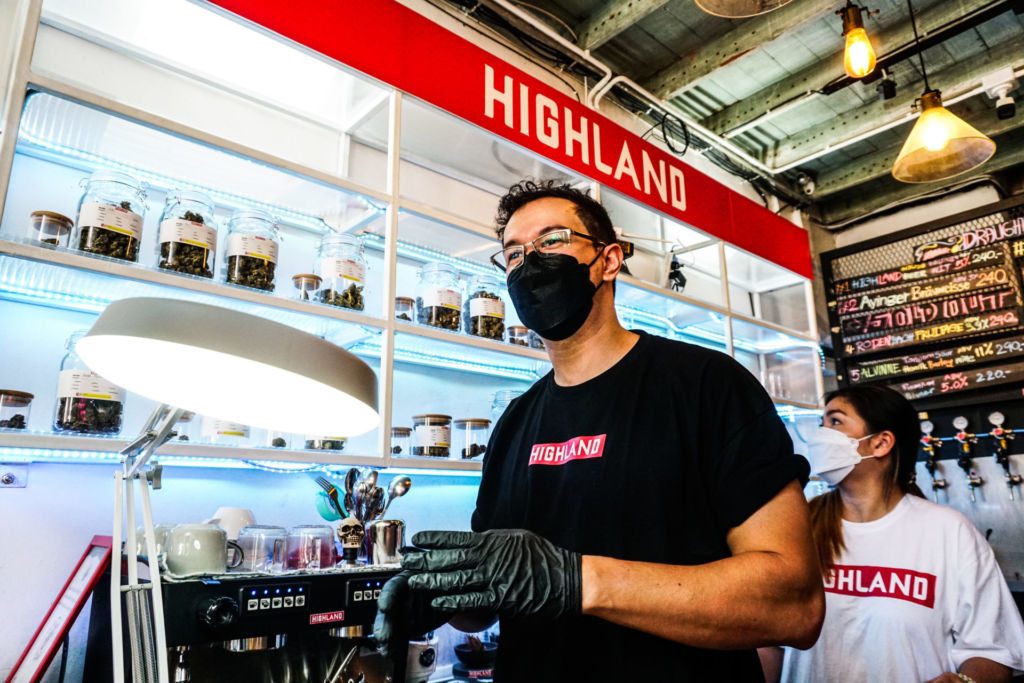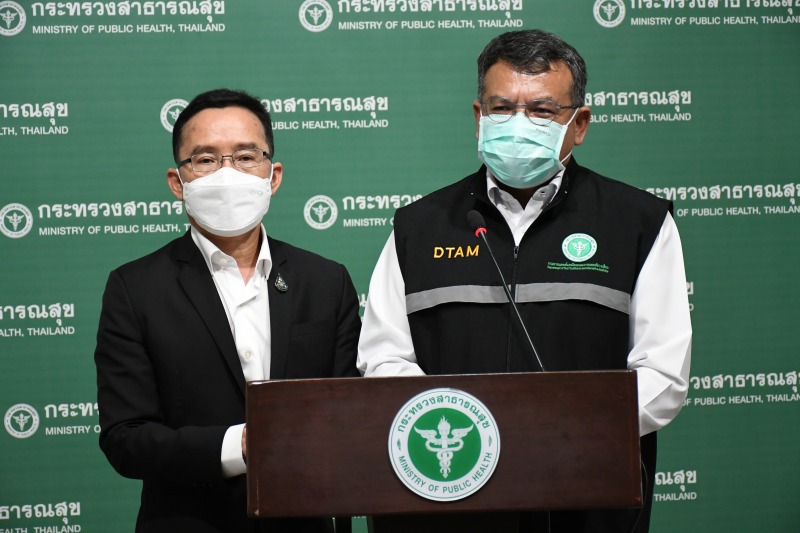A health ministry order that effectively spelled the end of unlicensed weed sales was revoked late Wednesday, hours after it spooked many shops into suspending operations with fears of arrest.
Dispensaries may continue operating, for now, after a top health official said late Wednesday afternoon that the order for instructing police to arrest those selling cannabis without official sanction had been withdrawn – an order that came despite there being no such licenses or legal requirement to possess one.
That’s exactly why it was pulled, according to Arun Avery of cannabis advocacy Highland, which operates a dispensary of the same name in Lat Phrao. Eager to show they were cracking down, he said, officials jumped the gun by insisting on licenses that don’t actually exist nor were required by law.
“That’s exactly the point,” he said. “Welcome to Thailand.”
Thai weed in disarray after ‘arrest’ order, insider says dispensaries ‘should never have existed’
The health officials who pulled back the order insisted they only meant to “protect” minors and other vulnerable groups amid a chorus of complaints from some sectors that the government moved legalization too fast and recklessly.
Speaking at a 5pm news conference, alongside Yongyos Thammawut of the Traditional and Alternative Medicine Department, Deputy Secretary of Health Narong Saiwong said he would review the order and “reconsider” the matter again for whatever can “bring utmost benefit to people.”

“As for concerns that there will be enforcement and arrest, I assure you that it probably won’t happen yet,” Yongyos told reporters at the hastily arranged news conference.
“People who [sold weed] before this announcement are not culpable,” he added, before stressing the “medical benefits” of cannabis.
The sudden backlash came as cannabis sellers blossom across the capital, from expensive storefronts to folding tables on the sidewalk at a rate that has alarmed some.
Yongyos said vendors who sell weed on the streets or “sell to promote smoking in the public” may get a “warning” from authorities.
“I’m insisting that we’re trying to limit the recreational use of cannabis as much as possible,” he said.
Yongyos said health officials will “design” a convenient license process.
Though no regulations were put in place before cannabis was fully legalized last month – and certainly no license requirements – there did seem to be a placeholder form awaiting applicants today at the health ministry.
Arun said that when Highland rushed to the health ministry today to ask about the nonexistent licenses, they were given a simple, generic, one page form to complete and asked to pay THB3,020 for a license to be issued by the Department of Traditional and Alternative Medicine, which has authority over cannabis.
Arun was told the license would be issued within two weeks, but that there was no reason people needed to halt sales until receiving it.

This latest reminder that policy makers rarely present a unified and thoughtful approach to their policymaking – reactive and piecemeal being the norm – took place within a 24-hour period during which the health ministry appeared to pull the rug out from the nascent commercial cannabis industry by threatening to arrest everyone and then hit the undo button.
Many dispensaries closed today amid confusion over the order. One of the people consulting lawmakers on amendments to the bill to regulate cannabis went so far as to tell Coconuts Bangkok this morning that unlicensed dispensaries “never should have existed,” and the order was meant to put an end to them.
Some dispensaries that closed Wednesday confirmed to Coconuts Bangkok that they would resume operations Thursday.
Related
Thai weed in disarray after ‘arrest’ order, insider says dispensaries ‘should never have existed’


